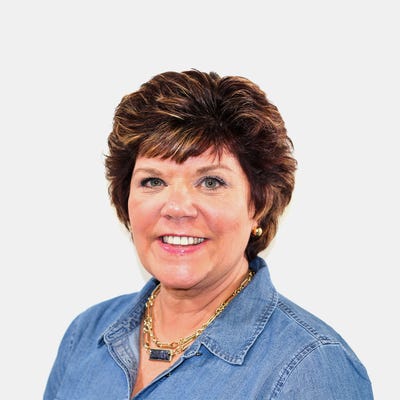Remarkable Independents’ Confidential: John Naylor, Rosemont Market
WGB takes a closer look at what makes the Portland, Maine-based grocer tick. In this web exclusive, WGB takes a closer look at what makes the Portland, Maine-based grocer tick via an interview with its owner and co-founder, John Naylor.
February 24, 2019

As one of WGB’s 2019 Remarkable Independents in the Community Stewardship category, Rosemont Market stands out for its commitment to making local food accessible to its customers and for its support of local farmers. In this web exclusive, WGB takes a closer look at what makes the Portland, Maine-based grocer tick via an interview with its owner and co-founder, John Naylor.
John Naylor, who opened his first Rosemont Market and Bakery in Portland, Maine, in 2005, has been working to make local food accessible to the neighborhoods he serves and is passionate about supporting local farmers.
“I’m most proud of our role in our communities,” said Naylor, whose single-store enterprise has since expanded to six locations and a warehouse all in Maine.

In 2017, Rosemont conducted a “local food development” study to determine the best strategies for increasing the volume of local food in-store, expanding distribution and increasing warehouse space and processing capacity for these items. One such strategy included becoming an early adopter of the Forager payment and procurement app, which streamlines the connection between the store and about 200 farmer-producers, said Naylor, who expanded on Rosemont Market’s philosophies and strategies in this WGB web exclusive.
WGB: What do you believe is most significant about being an independent food retailer in 2019?
John Naylor: Maine is, I believe, the only state that has more farmers this year than it did last year—and the average age of those farmers is skewing younger (and more woman operated). This means that in 2019, independent grocers in Rosemont’s home state have the opportunity to support these new agricultural entrepreneurs, to encourage this trend and, by so doing, both support the comeback of an economic sector and provide healthy, fresh food to our communities.
A factor I believe is contributing to this trend is the evolution of how grocers can connect with farmers. In Rosemont’s case, our use of the Forager procurement system has been a real game-changer in our ability to provide our customers with local food in a manner that best supports our business. Before we signed on with Forager, our buyer would connect with farmers via phone and fax, and pay them by check—a pretty antiquated, time-consuming process! Now, in a manner consistent with what you’d expect from tech in 2019, our buyer can simply use the Forager app to see what’s available from local farmers, place the order and pay for it, saving a tremendous amount of time and effort both for us and the farmers.

WGB: What do you consider to be most special about your company, and what are you most proud of?
JN: Our role in our communities is what I’m most proud of; our tag line is “good food from people you know,” and for 15 years, we’ve kept our commitment to that mission even as we’ve grown.
In 2018, we did about $2.5 million in local produce from about 55 different independent farms. Our customers love that we stay as seasonal and as local as we can, from produce to wine and cheese to having our own butcher shop and working with local fisheries. They get excited when we spread the word via social media about the latest arrivals—they’re very involved!
WGB: What do you feel best sets your stores apart in the communities they serve?
JN: We’re currently building our sixth store, deliberately choosing a small footprint space in the heart of a small community as we have with our other locations. Our stores are built on a European model, i.e., the place our customers shop a couple of times a week, where they have an ongoing relationship with their local butcher and with our staff who can advise them about what’s just in and what makes it special.
For example, in the past we’ve featured “spring dug” parsnips, which have been left in the ground over the winter then pulled in the spring, at which point they’ve converted their starch to sugar, making them incredibly delicious when cooked. These are only available two to three weeks out of the year, and are exactly the type of goods that get our customers excited about shopping at our stores—when we first introduced spring dug parsnips at one store, we sold up to 400 pounds in two weeks!
The whole focus of our business at this point is connecting the people in our stores’ areas with the farmers in Maine—a focus that is at the heart of our success. We couldn’t be as successful in this mission without our use of Forager.
About the Author
You May Also Like






